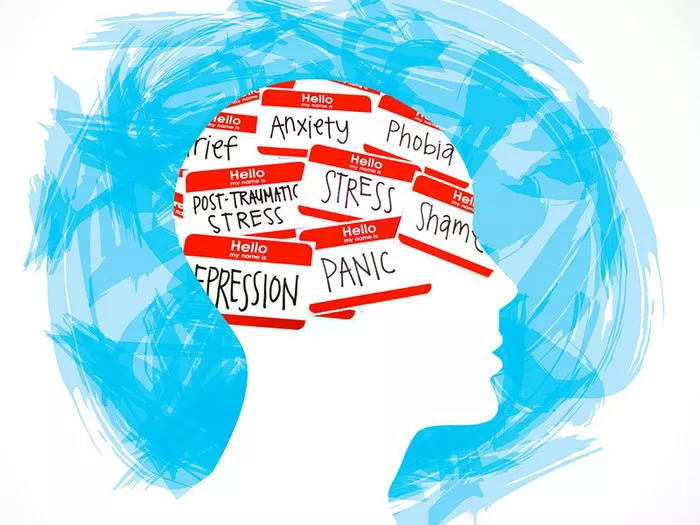Understanding BPD and Disability:
Define BPD: Borderline Personality Disorder (BPD) is a mental health condition characterized by unstable moods, behavior, and relationships. Individuals with BPD often experience intense emotions, have difficulty regulating emotions and impulses, struggle with self-image, and fear abandonment. Symptoms may include mood swings, unstable relationships, impulsivity, distorted self-image, and chronic feelings of emptiness.
Disability Definition: In the context of Social Security Disability Insurance (SSDI) and Supplemental Security Income (SSI), a disability refers to a condition that prevents an individual from engaging in substantial gainful activity (SGA) due to a medically determinable impairment expected to last at least 12 months or result in death.
BPD as a Qualifying Disability: BPD can qualify for disability benefits if it significantly impairs an individual’s ability to work and perform daily activities. However, meeting the criteria for disability benefits with BPD can be complex and requires thorough documentation of symptoms and functional limitations.
Qualifying for Disability with BPD:
Medical Documentation: Comprehensive medical records are crucial for proving the severity and duration of BPD symptoms. These records should include psychiatric evaluations, treatment history, therapy notes, medication history, and any hospitalizations related to BPD.
Functional Limitations: BPD symptoms can cause significant functional limitations in various areas of life, including work and daily activities. These limitations may include difficulties maintaining employment due to interpersonal conflicts, inability to concentrate, impulsivity leading to job instability, and frequent absences due to emotional instability.
Meeting Listing Requirements: The Social Security Administration (SSA) has specific criteria for mental disorders outlined in the “Blue Book.” To qualify for disability benefits under BPD, an individual must meet the criteria outlined in Section 12.08, which includes evidence of marked restriction of activities of daily living, marked difficulties in maintaining social functioning, and marked difficulties in maintaining concentration, persistence, or pace.
Medical-Vocational Allowance: Even if an individual with BPD does not meet the exact listing requirements, they may still qualify for disability benefits through a medical-vocational allowance. This involves assessing the individual’s residual functional capacity (RFC) and considering their age, education, work experience, and the extent to which their BPD symptoms limit their ability to work.
Applying for Disability Benefits:
Application Process: Applying for SSDI and/or SSI benefits involves completing an application online, over the phone, or in person at a local Social Security office. The application requires detailed information about the individual’s medical condition, work history, and other relevant factors.
Gathering Evidence: Along with the application, individuals should submit supporting evidence, such as medical records, treatment history, statements from mental health professionals, and any other documentation that demonstrates the impact of BPD on their ability to work and function.
The Importance of an Attorney: Seeking assistance from a disability attorney can be beneficial, especially during the appeals process if the initial application is denied. A disability attorney can provide guidance, gather additional evidence, and represent the individual at hearings before an Administrative Law Judge.
Additional Resources:
Links to Relevant SSA Pages: The SSA website provides information on disability benefits, including eligibility criteria, application procedures, and appeals process.
Contact Information for Mental Health Organizations: Organizations such as the National Alliance on Mental Illness (NAMI) and the Mental Health America (MHA) offer support, resources, and advocacy for individuals with BPD and other mental health conditions.
Information on Other Benefits Programs: In addition to SSDI and SSI, individuals with BPD may qualify for other benefits programs, such as Medicaid, housing assistance, and vocational rehabilitation services.
Conclusion
Navigating the disability benefits process with BPD can be challenging, but with proper documentation, support, and advocacy, individuals can access the financial assistance they need to support themselves while managing their condition.
FAQs
Can I get disability allowance for BPD?
Yes, individuals with Borderline Personality Disorder (BPD) can potentially qualify for disability benefits if their condition significantly impairs their ability to work. However, approval depends on various factors such as severity, impact on functioning, and medical evidence supporting the disability claim.
Why is the life expectancy of BPD 27?
The notion that the life expectancy of individuals with BPD is 27 is a misconception. There isn’t any specific life expectancy associated with BPD. However, people with BPD may have an increased risk of engaging in risky behaviors or experiencing comorbid conditions, which could impact their overall health and longevity.
What happens to people with untreated BPD?
Untreated Borderline Personality Disorder (BPD) can lead to various negative outcomes. Individuals may struggle with unstable relationships, intense mood swings, impulsive behaviors, and difficulty in regulating emotions. Without proper treatment, these challenges can exacerbate, potentially leading to difficulties in social, occupational, and personal functioning.
Related topics:
- Finding the Best Antidepressant to Avoid Weight Gain
- Navigating BPD: Understanding, Compassion & Support
- BPD Treatment: A Comprehensive Guide


